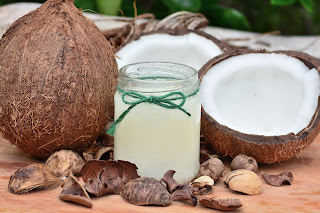In recent years, coconut oil has become increasingly popular as a cooking ingredient and even as a health supplement. This is because of its many potential health benefits, which have been scientifically studied and confirmed by experts. From weight loss to improved digestion to better skin, there are plenty of reasons to incorporate coconut oil into your diet. In this blog post, we’ll look at the evidence for the health benefits of eating coconut oil and outline how it can help improve your overall wellness. We’ll also discuss some tips for how to make sure you’re buying quality coconut oil that will truly provide the claimed benefits. Read on to learn more about why you should include this superfood in your diet!
What is Coconut Oil?
Coconut oil is good for you: it helps your heart, helps you slim down – even helps to treat epilepsy in children.
Numerous studies have found that coconut oil leads to improved levels of cholesterol (as the good kind goes up and the bad kind goes down), increased weight loss (as it increases energy expenditure and reduces appetite), as well enhanced anti-inflammatory status through the medium-chain fatty acids that it contains, which is essential towards preventing the chronic diseases associated with inflammation, such as heart disease and cancer.
The Health Benefits of Coconut Oil
Coconut oil contain zinc, vitamins and minerals, as well as powerful antioxidants. Some of its greatest health benefits are:
1) coconut oil contains high levels of healthy fat that are known to boost your metabolism and help you to lose weight;
2) coconut oil has been shown to improve the health of your cardiovascular system by raising “good” cholesterol and lowering the “bad” cholesterol;
3) coconut oil used to be a regular part of diet to improve digestion and integumentary system;
4) coconut oil is known to enhance the immune system particularly in patients affected by cancer;
5) coconut oil applied topically can protect the body from various infections, particularly fungal infections.
How to Use Coconut Oil
You can use coconut oil in place of other oils or butter in any recipe you can imagine, or you can use it as a healthy non-stick cooking spray. It has a very high smoke point, so great for stir-frying, sautéing and baking.
Outside of the kitchen, coconut oil can be used for everything from a natural moisturiser for your skin or hair to a few drops added to your bath water for a moisturising soak, or coconut oil pulling, a popular natural way to whiten teeth.
Recipes with Coconut Oil
There are many things that you can make with coconut oil, and many health benefits to eating it. Coconut oil is anti fungal, anti inflammatory and antibacterial agent so it can help with many different types of skin conditions. It can also help with digestion and absorption of nutrients in the gut. It boosts metabolism, thus helping with weight loss.
Some easy recipes that you can make with coconut oil include:
1. Coconut Oil Chocolate Bark: Recipe 1 lb (454 g) dark chocolate, chopped 1 tbsp (15 mL) coconut oil, melted Melt dark chocolate in a heat-proof bowl. Once melted, stir in the melted coconut oil until just blended. Spread onto a parchment-lined baking sheet. Add chopped nuts and dried fruit if desired. Freeze for about 30 minutes, or until solid. Remove from baking sheet and into pieces.
2. No-Bake Coconut Oil Granola Bars: Healthy, delicious, and no-bake? Sign me up! Combine 2 cups of oats, a stick (1/2 cup) of nut butter, 1/4 cup of honey, 1/4 cup of shredded coconut, 1/4 cup of chopped nuts/dried fruit of your choice, and 1/4 cup of melted coconut oil in a bowl and stir until all ingredients are evenly distributed. Press mixture into a parchment-lined 8x8 inch pan and refrigerate for at least one hour to set. Remove from pan by lifting edges of parchment paper and then cut into bars.
3) Roasted Sweet Potatoes with Coconut Oil:So easy! Another carbs any time of the day, but great add to breakfast
Conclusion
In conclusion, coconut oil is a healthy ingredient that you can add in so many dishes. It can be useful in both cooking and baking. The unique structure of medium-chain triglycerides offers several important health benefits, including improved digestion, lower cholesterol, and reduced blood pressure. You could substitute coconut oil for other oil within recipes, use it in place of butter. Or you could just take it straight out of the jar and down it by the spoonful!



No comments: